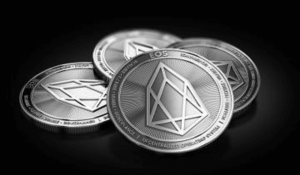Block.one Not Sure About Giving EOS Voice; Market Unmoved
As the community is learning about Block.one’s change of plans about blockchain on which their anticipated decentralized social media platform, Voice is to be launched, the price of EOS doesn’t seem to be affected.

The announcement in June 2019 clearly said that Voice will be launched on the EOS Public Blockchain. However, now the FAQ page states that: “While Voice is in beta and a highly iterative state, it will be run on a purpose-made EOSIO blockchain. In time, we would like Voice to leverage the EOS Public Blockchain, and potentially others that can meet the performance and governance demands of Voice.”
As this has been developing and the news has been spreading through the Cryptoverse, the price of the eighth coin by total market capitalization, EOS, is not showing any major reactions as it has been moving in correlation with the rest of the market in the past few days. While it went through a drop of 1.5% in the past 24 hours, it’s up 14% in the past week. Overall, in the past month, the price appreciated 45%. It’s currently (11:25 UTC) standing at USD 3.57.
Block.one is the publisher of EOSIO software, and the developer community has built a multitude of blockchains on EOSIO, such as the EOS Public Blockchain. It’s the community that maintains the EOS Public Blockchain, not Block.one.
That said, the original announcement also states that “being built on the EOS Public Blockchain, which runs on the EOSIO protocol, means that interactions on Voice will be public, allows for transparency to be a core part of the experience. Everyone – the user, to the contributor, the platform – plays by the same rules. No hidden algorithms, no invisible interests.”
To further cement that message, the first announcement also said that EOSIO will have an upgrade of its protocol, Version 2, introducing EOS-VM update to the software to enable the processing of smart contracts 12 times faster than EOSIO 1.0, among other things. Indeed, on January 10, EOSIO 2 has been introduced.
However, there have been several issues with EOS blockchain reported on recently, which may have had an influence on Block.one’s decision.
In October 2019, prior to the upgrade, Blockchain developer contributing to EOSIO ecosystem, Jack Tanner, listed eight best and eight worst features of the blockchain. Among the worst, he listed 3-minutes block finality, 30-minutes transaction limits, incorrect RAM price, smart contract upgrade limitations, protocol upgrade centralization, unused inflation model. Also, he added that block producers not contributing to governance, and resource rate limits throttle the network and are unfair.
In November, EOS dapp (decentralized app) EarnBet posted a note saying that, in its current, “sad” state, “the EOS blockchain is no place for dapps like EarnBet with commercial-scale aspirations.” Reasons given, among others, are intense network congestion and spam, which leaves users unable to access their EOS accounts; the network requires around 30 EOS (USD 106) staked to an account daily to perform a single transaction; and high effective EOS transaction fees.
In either case, there are no explanations on Block.one’s, Voice’s, or EOS’s websites or social network accounts. We have contacted Block.one and Voice and will update the article should there be a response.
As reported in June 2019, Block.one announced that it will be launching its own social network – a blockchain and crypto-based alternative to Facebook – called Voice, which would verify the identities of all accounts. A public beta is planned for launch on February 14. Block.one said in December that they’ve gotten “tens of thousands of sign-ups and counting”; Voice announced that it appointed Forbes’ global Chief Digital Officer, Salah Zalatimo, as Chief Executive Officer.




